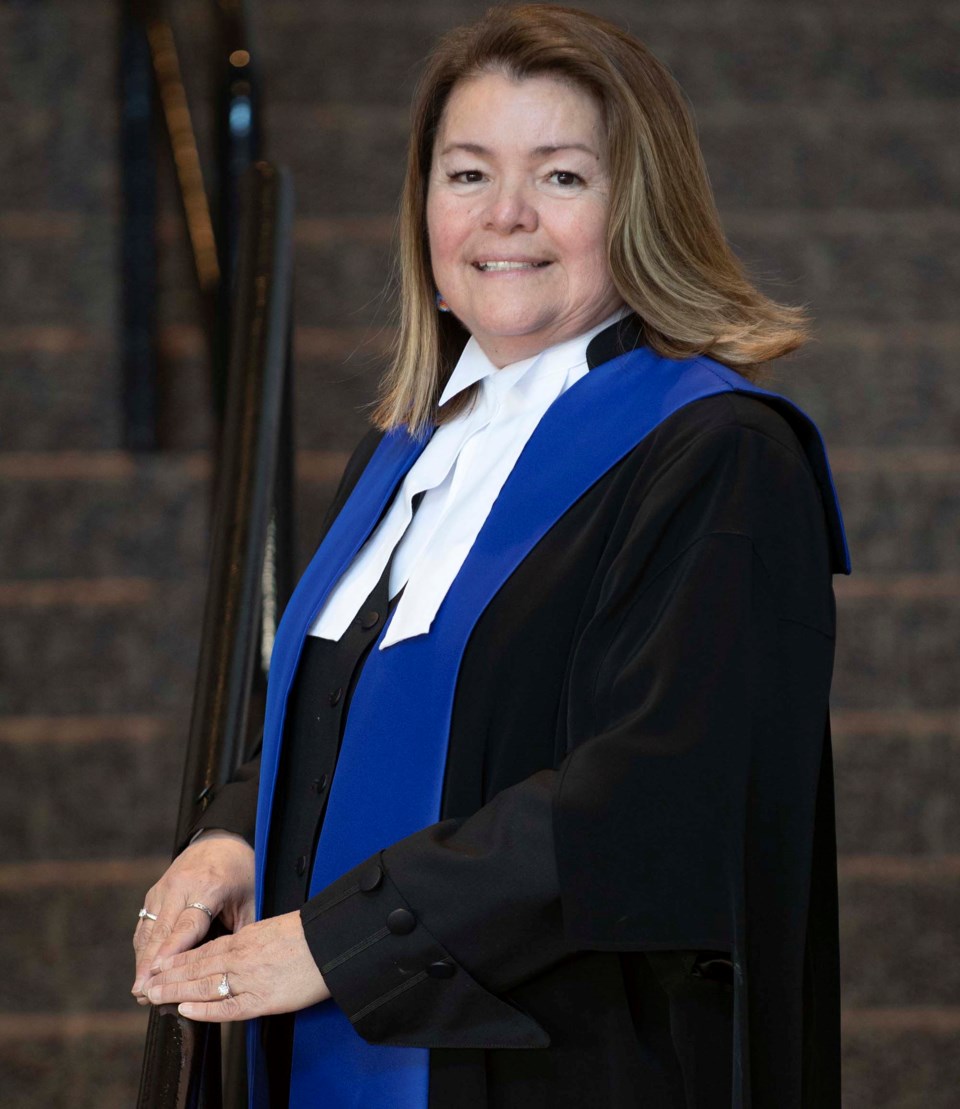The Honourable Judge Cheryl Arcand-Kootenay was the first Treaty 6 woman to be appointed to the Provincial Court of Alberta in November of 2018.
Almost exactly 30 months later, on May 26, 2021, Arcand-Kootenay, a nehiyaw iskwew (Cree woman) from Kipohtakaw (Alexander) First Nation, was appointed to the Justice of the Court of Queen’s Bench Alberta.
“I’m very honoured and very excited,” said Arcand-Kootenay, formerly a judge of the Provincial Court of St. Paul. As a tri-hat judge, she presided over files that dealt with family, criminal, and civil law.
“I hope to continue exposing myself to various areas of law and I want to make a difference. I think, when I was appointed to the provincial court – that was one of the driving forces – that I wanted to make a difference, to have my voice heard on judgments I write. When you sit on the bench no day is ever the same. Every day is so diverse, and I look forward to that,” said the former St. Albert resident.
Judge Jacqueline Schaffter, assistant chief judge of the Edmonton region, and her supervisor noted that, as a lawyer, Arcand-Kootenay appeared before her on child-welfare and family-law matters.
“She was a very good lawyer, well prepared, and very articulate. Most of the time, when we saw a child-protection matter, she was the voice of a child. She was very well organized,” said Schaffter.
“When she came to the bench, criminal matters were not her strength. She had not practiced it in many years. She spent a great deal of time learning more. She was very well prepared and articulate in her decisions. She handled the files well and was very ethical.”
One of Arcand-Kootenay's greatest strengths as an Indigenous woman is cultural diversity. During her tenure for the judicial district of St. Paul, Arcand-Kootenay made a difference introducing a child worker case-management project.
She also took on mentoring duties at the Law Students’ Association, a student group within the Faculty of Law that supports Indigenous students and works toward raising awareness on current Indigenous legal issues.
As an Indigenous judge, Arcand-Kootenay presided over a healing court on a family matter. In one case, both parties appearing at docket were Indigenous and were locked in disagreement. As the judge, she suggested a judicial dispute resolution. But the family was uninterested in that type of resolution. Arcand-Kootenay then suggested a healing court.
“We immediately organized a healing circle. So, with the help of the Native court worker, we were able to bring in an elder and we were able to do a smudging ceremony before we began ... We set up a circle in the barristers’ lounge and after we smudged, the elder came in the circle and said a prayer. After the prayer, we started the circle and after two hours the family was able to reach a resolution.”
With 25 years' experience as both a practising lawyer and judge, Arcand-Kootenay has seen the courts pivot toward a restorative justice model, one where all cultural backgrounds coming into court will have their voices heard.
“I’m hoping that when people come into the courtroom and see an Indigenous judge, they don’t feel like an outsider,” she said.
The youngest of five children, Arcand-Kootenay was raised at Alexander First Nation for the first six years of life before her family moved to Edmonton. After graduating from high school, she moved back to Alexander while attending the University of Alberta.
“When I was in high school, I started thinking about what I wanted to do as a career. I was really interested in architecture, so I thought I wanted to be architect or a lawyer. I took some drafting courses in high school and learned very quickly I could not draw to save my life. I nixed on architecture and decided to go for law.”
She graduated from the University of Alberta in 1988 with a Bachelor of Arts in political science and then a Bachelor of Law degree in 1992. Arcand-Kootenay is currently completing her Masters of Law in Dispute Resolution at Osgoode Hall Law School.
As a lawyer, Arcand-Kootenay was the director's counsel for Akamkisipatinaw Ohpikihawasowin Child and Family Services, a delegated First-Nation agency in Maskwacis, and for the Alexis First Nation. She was also a roster lawyer through the Legal Representation for Children and Youth, Office of the Child and Youth Advocate.
During this period, Arcand-Kootenay lived in St. Albert for 23 years, raising three children, two of whom have picked up her love for the law and who are following her footsteps.
“To me the biggest difference you’ve made as a role model is what your kids choose to do. I have one daughter who is a lawyer and my son wants to return to law. And I have a nephew who is a lawyer. That speaks volumes to me.”



